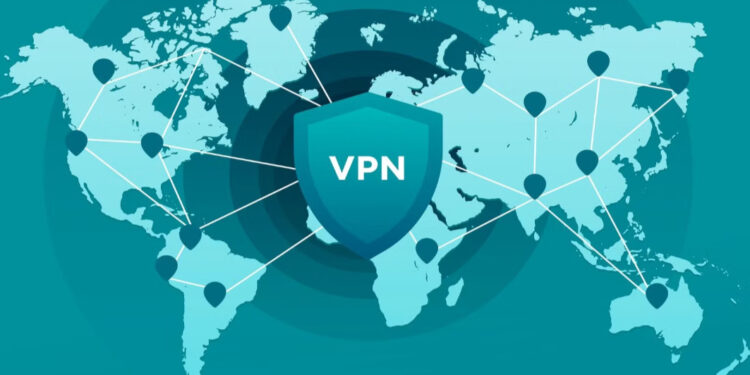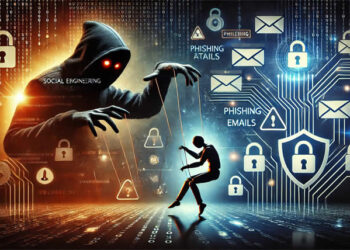Cybersecurity is one of the biggest challenges we face as our lives become increasingly intertwined with the online world. Whether you’re streaming your favorite series in a coffee shop, logging into your work account from home, or shopping online during a commute, your internet activities are exposed to various privacy risks. This is where Virtual Private Networks, better known as VPNs, step in.
This article will explain what a VPN is, how it works, and why it’s an essential tool in today’s digital age. By the end, you’ll have the knowledge to decide whether a VPN is right for your online habits—and how to choose the best one if it is.
What is a VPN?
A VPN (Virtual Private Network) is a technology that provides a secure and private connection between your device and the internet. It’s as if you’re operating in your own private online tunnel—one that’s hidden from prying eyes.
When you use a VPN, your internet traffic is encrypted and routed through a server operated by the VPN service provider. This obscures your IP address, making it almost impossible for websites, hackers, or even your Internet Service Provider (ISP) to track your online activities.
To put it simply, a VPN acts as both a shield and a secret pathway, keeping your data safe and your identity anonymous online.
Why is a VPN Important in Today’s Digital World?
With the digital landscape evolving faster than ever, the risks surrounding our online activities have grown significantly. A VPN offers several crucial benefits, making it an indispensable tool for both individuals and businesses.
1 Protect Your Privacy
Without a VPN, your browsing habits are visible to ISPs, surveillance agencies, and even cybercriminals. For example, ISPs can (and in some cases, do) sell your data to third-party advertisers. A VPN makes it impossible for anyone to pinpoint your browsing activities to your identity, preserving your privacy.
2 Secure Public Wi-Fi Connections
Public Wi-Fi networks, like those in airports and cafes, are convenient but notoriously insecure. Cybercriminals often exploit these networks to steal sensitive data, such as passwords or financial information. A VPN encrypts your data, preventing unauthorized access even on vulnerable public networks.
3 Bypass Content Restrictions and Censorship
Ever tried to watch a YouTube video or stream a series only to find that it’s unavailable in your region? Government censorship or content restrictions can be frustrating. By connecting through servers in different locations worldwide, a VPN can often bypass these limitations, granting access to a freer internet.
4 Ensure Safe Online Shopping
Online shopping exposes your payment information, making it a target for cybercriminals. With a VPN, your financial transactions are safeguarded, offering an extra layer of protection against scams or fraud.
5 Support Safe Remote Work
The remote work revolution means employees are accessing sensitive company data from various locations. VPNs are essential for securing these remote connections and protecting business-critical information from cyber threats.
How Does a VPN Work?
Understanding the mechanics of a VPN can help you appreciate the protection it offers. Here’s how it works, step by step:
+ Connection to a VPN Server
Once you activate the VPN app, it connects your device to one of the provider’s servers. This server becomes your gateway to the internet.
+ IP Address Masking
Your IP (Internet Protocol) address, which identifies your device’s location, is replaced with the IP address of the VPN server. This makes it appear as if you’re accessing the internet from a completely different location.
+ Encryption of Data
A VPN uses encryption protocols to scramble your data and turn it into unreadable code. Even if someone intercepts your data, they won’t be able to decipher it without the proper decryption key.
+ Secure Data Transmission
Your internet data—whether it’s emails, searches, or file downloads—travels securely through this encrypted “tunnel” to and from its destination.
How to Choose the Right VPN
Not all VPNs are created equal, so it’s essential to choose one that fits your needs. Here are a few factors to consider.
1 Security and Encryption Protocols
Look for VPNs that use robust encryption protocols, such as AES-256, which is considered the gold standard in cybersecurity.
2 No-Log Policy
A reliable VPN should have a strict no-log policy, meaning they don’t collect or store any data on your browsing activities.
3 Server Locations
Choose a VPN provider with servers in multiple countries. This is especially useful if you want to bypass regional restrictions or censorship.
4 Speed and Performance
Some VPNs can slow down your internet connection because your data has to travel through an extra server. Opt for VPNs known for high speed and performance.
5 Compatibility
Ensure the VPN is compatible with all your devices, including smartphones, tablets, laptops, and even routers.
Common Myths About VPNs
While VPNs are powerful tools, many misconceptions surround their use. Here are some common myths debunked.
Myth 1: “I Don’t Need a VPN Because I Have Nothing to Hide”
Privacy isn’t about hiding something; it’s about having control over how your data is used. Even if you’re not worried about your search history, your personal data can be exploited in ways you might not approve of.
Myth 2: “VPNs are for Tech Experts Only”
VPNs are incredibly user-friendly. Most providers offer intuitive apps with simple on/off switches—perfect for beginners and experts alike.
Myth 3: “VPNs are Expensive”
Many affordable or even free VPN options exist, though premium versions often offer better security and performance. The cost is usually a small price to pay for peace of mind online.
Responsible VPN Use
While VPNs provide excellent protection, they’re not a one-size-fits-all solution. Always combine your VPN usage with other cybersecurity practices, such as using strong passwords, enabling two-factor authentication, and staying cautious of phishing attempts.
Wrapping it Up
VPNs are more than just an optional extra; they are essential tools in a rapidly evolving digital world. Whether you’re concerned about privacy, secure public Wi-Fi access, or online freedom, a VPN can help safeguard your online activities.
Are you ready to secure your digital presence? Explore trusted VPNs and discover how simple it is to protect your privacy and enhance your online experience.




















